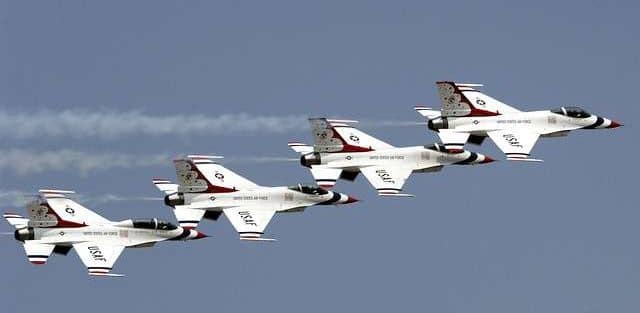Lateral Separation

Lateral separation refers to the spacing of aircraft traffic that is flying on the same lateral plane or altitude. This is an essential component of aviation safety, as it helps prevent in-air collisions and other issues charter flight operations are flying to close together. In general, separation is used to maintain a minimum safe distance between aircraft using the same airway. However, it’s also used to define minimum flying distances between a charter plane and:
- Terrain
- Obstacles (towers etc.)
- Controlled airspace
The Role of Air Traffic Control and Separation
It is the role of air traffic control to ensure aircraft are separated. They can issue directions to pilots to change their course to achieve separation. For example, an air traffic controller could instruct the pilot of a charter flight to either turn or increase or decrease the plane’s altitude. Lateral separation can refer to aircraft at the same altitude in the same airway that are flying:
- In opposite directions
- Parallel to one another in the same direction
Furthermore, separation becomes increasingly important during takeoff and landings at airports. This is because there is such a high concentration of aircraft in one area, especially at busy commercial airports. However, not all aircraft fly using separation rules. It depends on the type of airspace the aircraft is flying in, as well as the flight rules the aircraft is flying under (instrument flight rules or visual flight rules). For instance, for Class A and Class B airspace, air traffic control provides separation for all charter flight operations.
Lateral separation refers to the spacing of aircraft traffic that is flying on the same lateral plane or altitude. This is an essential component of aviation safety, as it helps prevent in-air collisions and other issues charter flight operations are flying to close together. In general, separation is used to maintain a minimum safe distance between aircraft using the same airway. However, it’s also used to define minimum flying distances between a charter plane and:
- Terrain
- Obstacles (towers etc.)
- Controlled airspace
The Role of Air Traffic Control and Separation
It is the role of air traffic control to ensure aircraft are separated. They can issue directions to pilots to change their course to achieve separation. For example, an air traffic controller could instruct the pilot of a charter flight to either turn or increase or decrease the plane’s altitude. Lateral separation can refer to aircraft at the same altitude in the same airway that are flying:
- In opposite directions
- Parallel to one another in the same direction
Furthermore, separation becomes increasingly important during takeoff and landings at airports. This is because there is such a high concentration of aircraft in one area, especially at busy commercial airports. However, not all aircraft fly using separation rules. It depends on the type of airspace the aircraft is flying in, as well as the flight rules the aircraft is flying under (instrument flight rules or visual flight rules). For instance, for Class A and Class B airspace, air traffic control provides separation for all charter flight operations.







